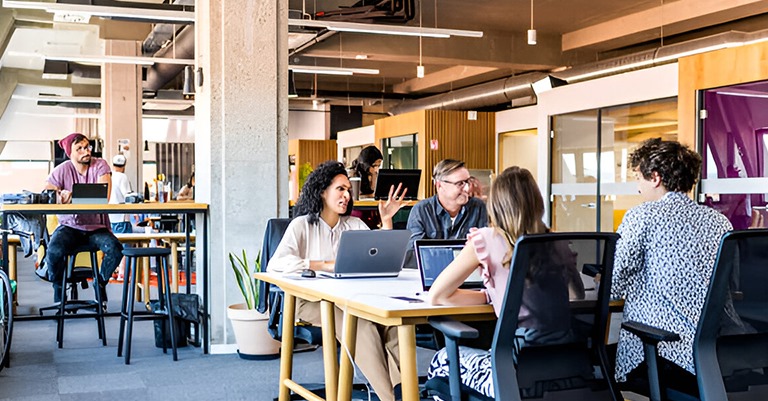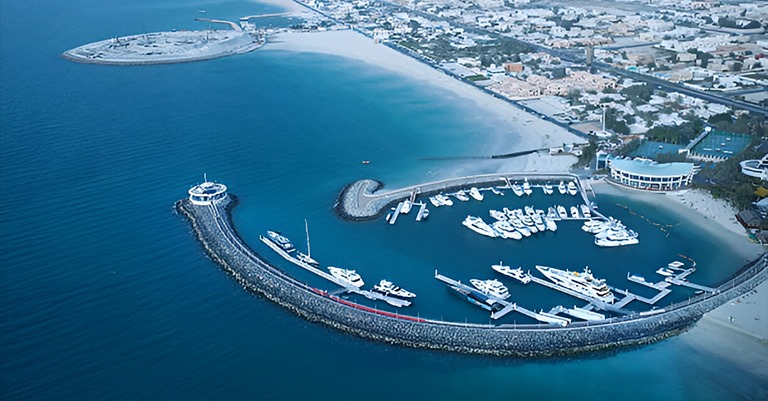Dubai’s real estate sector stands at a pivotal juncture in 2024, marked by transformative trends that are shaping its future trajectory. From sustainability initiatives to the rise of PropTech solutions, the market is evolving rapidly, driven by shifting consumer preferences, regulatory changes, and technological advancements. This article delves into five major trends that are redefining Dubai real estate landscape and influencing investment strategies.
Sustainability and Green Initiatives
In recent years, sustainability has emerged as a cornerstone of Dubai’s real estate development strategy. Fueled by global environmental concerns and local government mandates, developers are increasingly integrating green building practices into their projects. The Dubai Clean Energy Strategy 2050, launched to ensure sustainable development and energy security, underscores the city’s commitment to reducing carbon emissions and promoting renewable energy sources.
Green building certifications such as LEED (Leadership in Energy and Environmental Design) and Estidama are gaining prominence, incentivizing developers to adopt eco-friendly construction practices. These certifications not only enhance a property’s marketability but also appeal to environmentally conscious investors and tenants seeking energy-efficient and sustainable living spaces.
Moreover, Dubai’s Green Building Regulations and Specifications mandate stringent environmental standards for new developments, encouraging the use of sustainable materials, water-efficient technologies, and renewable energy solutions. As a result, green buildings are becoming synonymous with premium real estate offerings, driving demand for properties that prioritize environmental stewardship alongside luxury and comfort. Here are some recent insights on the UAE’s sustainability and green initiatives:
Renewable Energy:
- The UAE aims to generate 50% of its energy from renewable sources by 2050.
- The Mohammed bin Rashid Al Maktoum Solar Park in Dubai is one of the largest solar parks globally, with a planned capacity of 5,000 megawatts by 2030.
Carbon Emissions Reduction:
- The UAE has committed to reducing its carbon emissions significantly.
- The Abu Dhabi National Oil Company (ADNOC) aims to reduce its greenhouse gas emissions by 25% by 2030.
Waste Management:
- The UAE is investing in waste-to-energy projects and promoting recycling.
- The Waste-to-Energy Plant in Sharjah processes 300,000 tons of municipal solid waste annually, generating electricity.
Biodiversity Conservation:
- The UAE has established protected areas and wildlife sanctuaries.
- The Al Wathba Wetland Reserve in Abu Dhabi is home to diverse bird species and contributes to biodiversity conservation.
Targets by 2030:
- Increase UAE’s GDP by 4 to 5 percent.
- Boost exports by AED 24 to 25 billion.
- Reduce emissions to less than 100 kilowatt-hours.
Digital Transformation and PropTech Innovations

The digital transformation of Dubai real estate market is revolutionizing industry operations and enhancing customer experiences. PropTech innovations—technologies tailored for the real estate sector—are driving efficiency, transparency, and convenience across the property lifecycle. From virtual property tours and augmented reality applications to blockchain-enabled smart contracts and digital payment solutions, technology is reshaping how properties are marketed, managed, and transacted.
The COVID-19 pandemic accelerated the adoption of digital tools, prompting developers and real estate agencies to embrace remote viewing options and virtual open houses to comply with social distancing measures. These technologies have not only facilitated business continuity during crises but also expanded market reach by enabling international investors to explore properties without physical travel.
Blockchain, in particular, is revolutionizing property transactions by offering secure, transparent, and immutable records of ownership. Smart contracts powered by blockchain technology automate contract execution and payment processing, reducing transaction times and minimizing the risk of fraud. As Dubai continues to position itself as a global hub for innovation and technology, PropTech solutions are expected to play an increasingly pivotal role in driving efficiency and competitiveness within the real estate sector.
Shift Towards Affordable Housing
Dubai real estate market is witnessing a paradigm shift towards affordable housing solutions, driven by demographic changes, regulatory reforms, and socioeconomic factors. The city’s population growth, fueled by expatriate workers and young professionals, has spurred demand for housing options that are accessible and affordable without compromising quality or location.
In response, the government has launched several initiatives aimed at expanding affordable housing supply and promoting homeownership among middle-income residents. The Affordable Housing Initiative, introduced to address housing affordability challenges, incentivizes developers to allocate a percentage of their projects to affordable housing units priced below market rates.
Additionally, the Rent-to-Own Scheme offers aspiring homeowners flexible payment plans and rent deductions towards property ownership, making homeownership more attainable for tenants while stimulating demand for residential properties in Dubai’s burgeoning real estate market.
Developers are also exploring innovative construction techniques and modular housing solutions to reduce development costs and accelerate project delivery without compromising quality. These initiatives not only support sustainable urban development but also enhance social inclusivity by providing diverse housing options that cater to the city’s growing population.
Rise of Co-living and Co-working Spaces

The rise of co-living and co-working spaces is transforming Dubai real estate landscape, driven by changing lifestyles, urbanization trends, and evolving work preferences. Co-living developments offer residents shared living spaces and communal amenities, fostering a sense of community and social interaction among tenants. These purpose-built accommodations appeal to millennials and Gen Z, who prioritize flexibility, convenience, and social connectivity in their housing choices.
Similarly, the shift towards remote work and flexible employment arrangements has fueled demand for co-working spaces equipped with state-of-the-art facilities, collaborative environments, and flexible leasing options. Co-working operators are leveraging technology to enhance workspace efficiency, offering virtual office solutions, digital connectivity, and on-demand services that cater to the diverse needs of modern businesses and entrepreneurs.
Dubai’s strategic location, cosmopolitan environment, and robust infrastructure make it an ideal market for co-living and co-working developments, attracting international investors and operators seeking to capitalize on the city’s dynamic real estate market. As demand for flexible living and workspace solutions continues to grow, developers are diversifying their portfolios to include mixed-use developments that combine residential, commercial, and hospitality components to create vibrant, integrated communities.
Emphasis on Wellness and Lifestyle Amenities
Dubai real estate developers are increasingly prioritizing wellness and lifestyle amenities to cater to the evolving needs and preferences of discerning buyers and tenants. Properties are integrating wellness-centric features such as fitness centers, spa facilities, green spaces, and health-focused designs that promote physical and mental well-being.
Wellness real estate—a niche market segment that emphasizes holistic living environments—is gaining traction among health-conscious consumers seeking residences that support their lifestyle choices. These properties are designed to enhance quality of life by promoting healthy habits, stress reduction, and overall well-being through thoughtful design, amenities, and programming.
Dubai’s reputation as a global hub for wellness tourism further amplifies the demand for properties that offer wellness-oriented amenities and services, attracting domestic and international buyers seeking to invest in properties that align with their health and lifestyle preferences.
Developers are also integrating sustainable practices and green spaces into their projects to create sustainable urban environments that promote health, happiness, and community well-being. By prioritizing wellness and lifestyle amenities, Dubai real estate sector is not only meeting market demands but also setting new standards for quality living in the global real estate market.
In conclusion, Dubai real estate market is undergoing a profound transformation characterized by sustainability initiatives, digital innovation, affordable housing solutions, co-living/co-working trends, and wellness-focused developments. These trends are reshaping industry dynamics, influencing investment strategies, and positioning Dubai as a leading destination for real estate innovation and investment.
By embracing these trends and adapting to evolving market demands, stakeholders can capitalize on emerging opportunities and navigate challenges in Dubai’s dynamic real estate sector. As the city continues to evolve and diversify its real estate offerings, stakeholders are encouraged to stay informed, agile, and proactive in leveraging these trends to drive sustainable growth and success in the competitive global market landscape.






